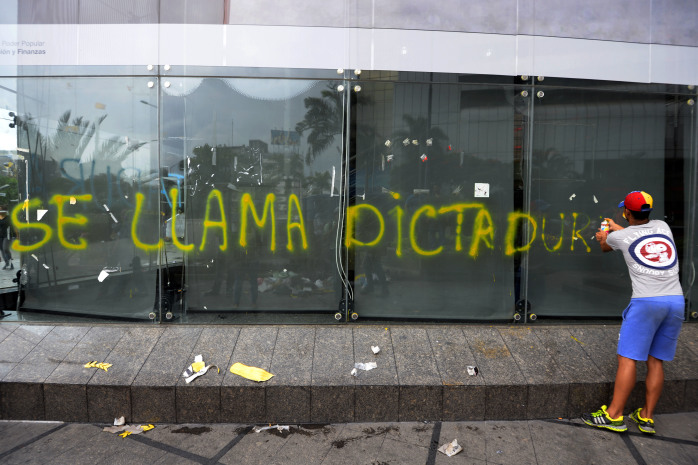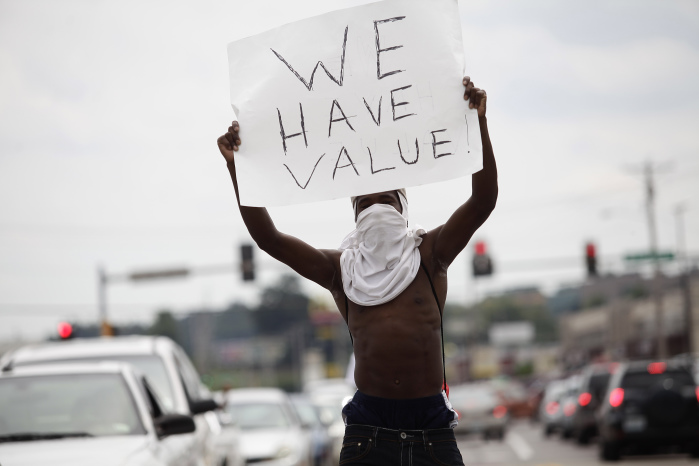“L’état c’est moi” (I am the State) is a phrase commonly attributed to Louis XIV of France. Although there is no proof that he actually said it, the phrase has survived for centuries, and today is often used to refer to states and governments that abuse their power. Democracy has many meanings and interpretations, but one of its core principles is that it is incompatible with tyranny – that many people are the state, and no one person can determine a country’s destiny. The world has come a long way in understanding this concept. Never before in human history have so many people been aware that a politician, a policeman or a bureaucrat must not impose his will on citizens or override their rights.
This level of awareness has also been accompanied, to varying degrees, by better institutions, regulations and practices for the exercise of public power – but the task is far from complete. Unfortunately, a strong belief in democracy has not translated automatically into better democratic states that are able to protect their citizens while respecting their freedoms. Recent headlines have highlighted this in unsettling ways. The abduction of more than 270 schoolgirls in Nigeria seven months ago; the more than 20 people murdered every day in Honduras, the most violent country in the world without an armed conflict; and the disappearance of 43 students in the city of Iguala in Mexico are just three internationally infamous examples of states’ failure to keep their citizens safe. What’s more, daily occurrences of street crime, terrorism and overall violence are even worse in these and many other countries. And the public unrest in Ferguson, Missouri, because of the killing of young Michael Brown by a police officer has shown that even in consolidated democracies like the United States, state institutions are not exempt from being discredited and losing public support.
Recommended: When ‘politician’ is a dirty word
That’s what’s at stake here, after all. Events like these result not only in the loss of human lives, but also of confidence in the state’s institutions to prevent such tragedies, and to judge the responsible parties. People demand security and justice. When they get neither, the result is a serious rupture of the bond between the state’s institutions, the people and their representatives.

So how should we respond to situations like this? How can states facing such tragedies protect citizens’ safety as well as their liberties? The answer is not simple. Determining the extent of state powers and of citizens’ rights has been a political dilemma for centuries. And yet, we have states and we have to deal with them the best way we can to protect and enhance liberty. That, at least in modern liberal democracies, is the ultimate goal. Immediate political interests, however, have sacrificed the end for the means by increasing the powers of the state. Think of the the “mano dura” (strong hand) policies in Latin America to fight crime, Mexican President Enrique Peña Nieto’s plans to “reform” the police force, or the anti-terrorism laws enacted all around the world with little or none inclusive debate. This is not the best answer, and our representatives and we know it. Granting draconian powers to leaders or police forces has proved wrong in the past, and it’s wrong now. Moreover, it is wrong in essence. It is also most often a political show, especially when those leaders or forces are also weak or corrupt.
The only way to prevent tyranny while guaranteeing security is through reasonable and permanent debate within political parties, civil society organizations, and academic institutions within the formal and informal mechanisms of discussion in a democracy. There is a difference – a big one – between citizens agreeing on legal, legitimate and reasonable limitations to the exercise of certain freedoms to provide security, and governments imposing limitations. Societies that openly discuss the scope of their security policies, the extent of their rights, and the necessity of their laws, are the only ones able to counteract any attempt of tyranny from their public authorities. The leadership and structure of these discussions should come from our legislatures. Unfortunately, legislatures are the democratic institutions with least public support – but that’s an issue for another column.

The solution, of course, also includes pragmatic measures like having better and more transparent judiciaries, prosecutors and police forces, which requires reform, training and the corresponding investment. However, as hinted above, the solution is not only monetary. It is also moral, and that requires deeper changes. It requires changes from those in power: People are right to be angry because their fellow citizens are dying and disappearing, sometimes because of the indolence and inaction of the highest authorities. In the case of Mexico, for example, protesters on the streets are not only angry because of what happened, but also because their president is not listening to them.
It also requires changes from citizens. Our democracies are at risk when some citizens remain indifferent to tragedies like the ones I’ve mentioned here, while others die or live with fear every day. That is a sign not only of inequality but also of democratic rupture. A failed state is a reflection of a failed society. All citizens are responsible for the state they have. No doubt bad political representatives can aggravate social situations by inaction or via erroneous laws and policies, but in the long run states are enhanced or weakened by everyone.
There’s another quote attributed to Louis XIV: “I leave, but the State shall always remain.” Protests in Mexico, Nigeria, United States and many other countries are showing that citizens believe that if some states will endure beyond our generation, they must change. Building the type of state we want is the hard task. But the painful events in recent headlines have shown us that there is something we know: We as citizens are clear about the type of state we do not want to have.
Read previous Politic(o)s columns here
Tomás Quesada-Alpízar is pursuing his doctoral degree in politics at the University of Oxford. In “Politic(o)s,” published at the start of every month, he explores current events and political issues in Costa Rica and around the region. He welcomes reader questions and comments at politicostt@gmail.com.

